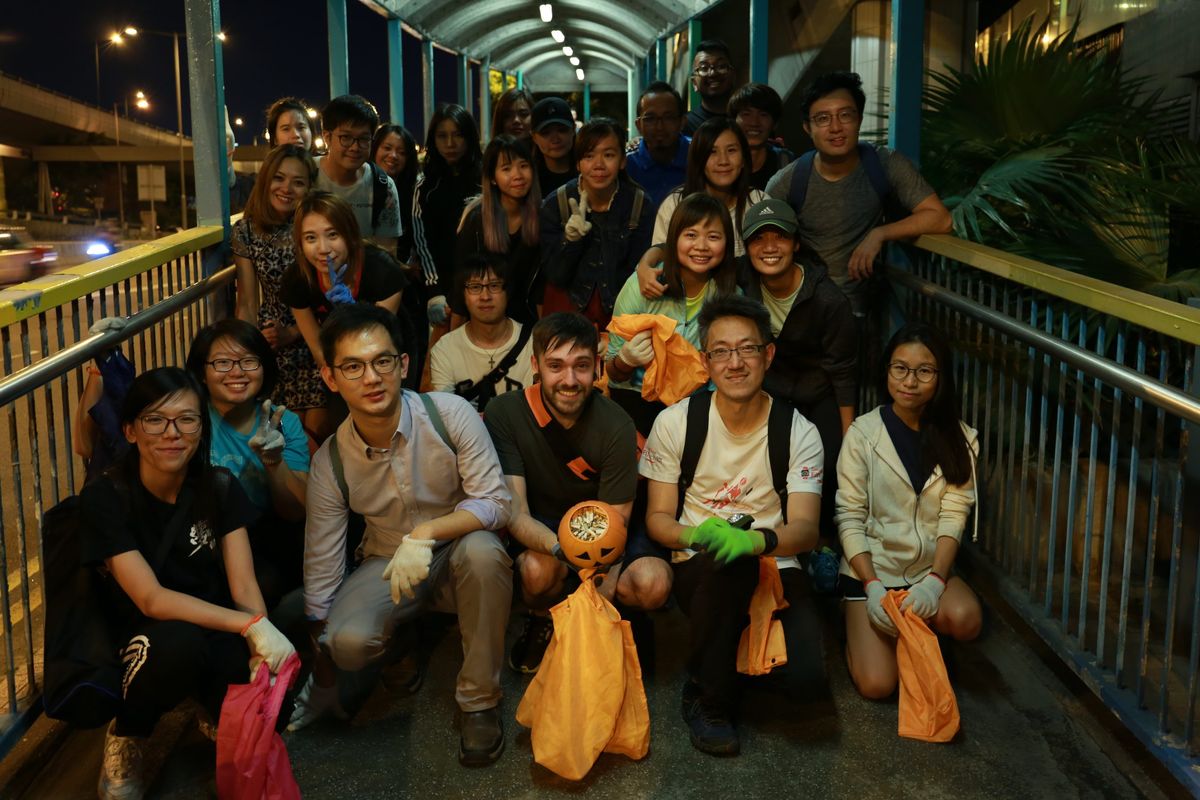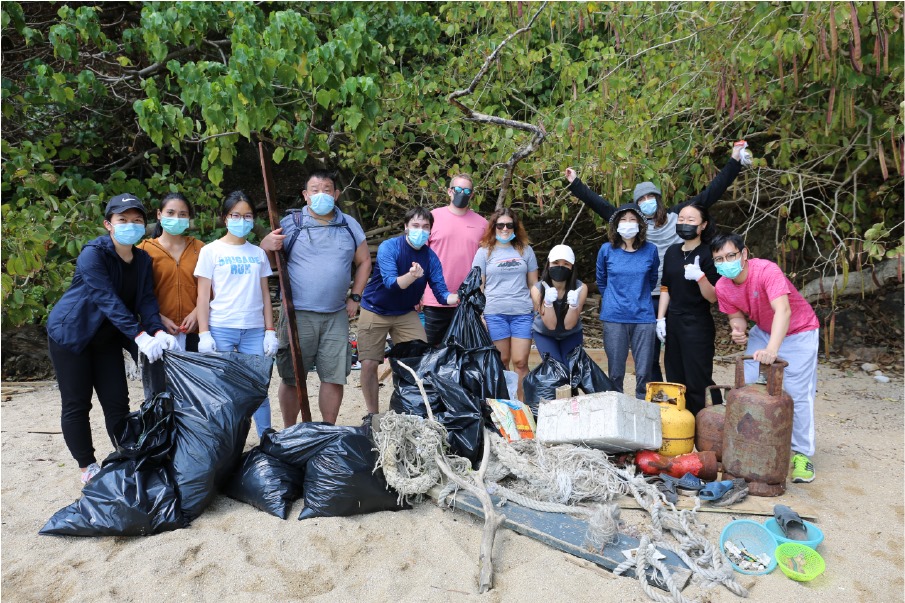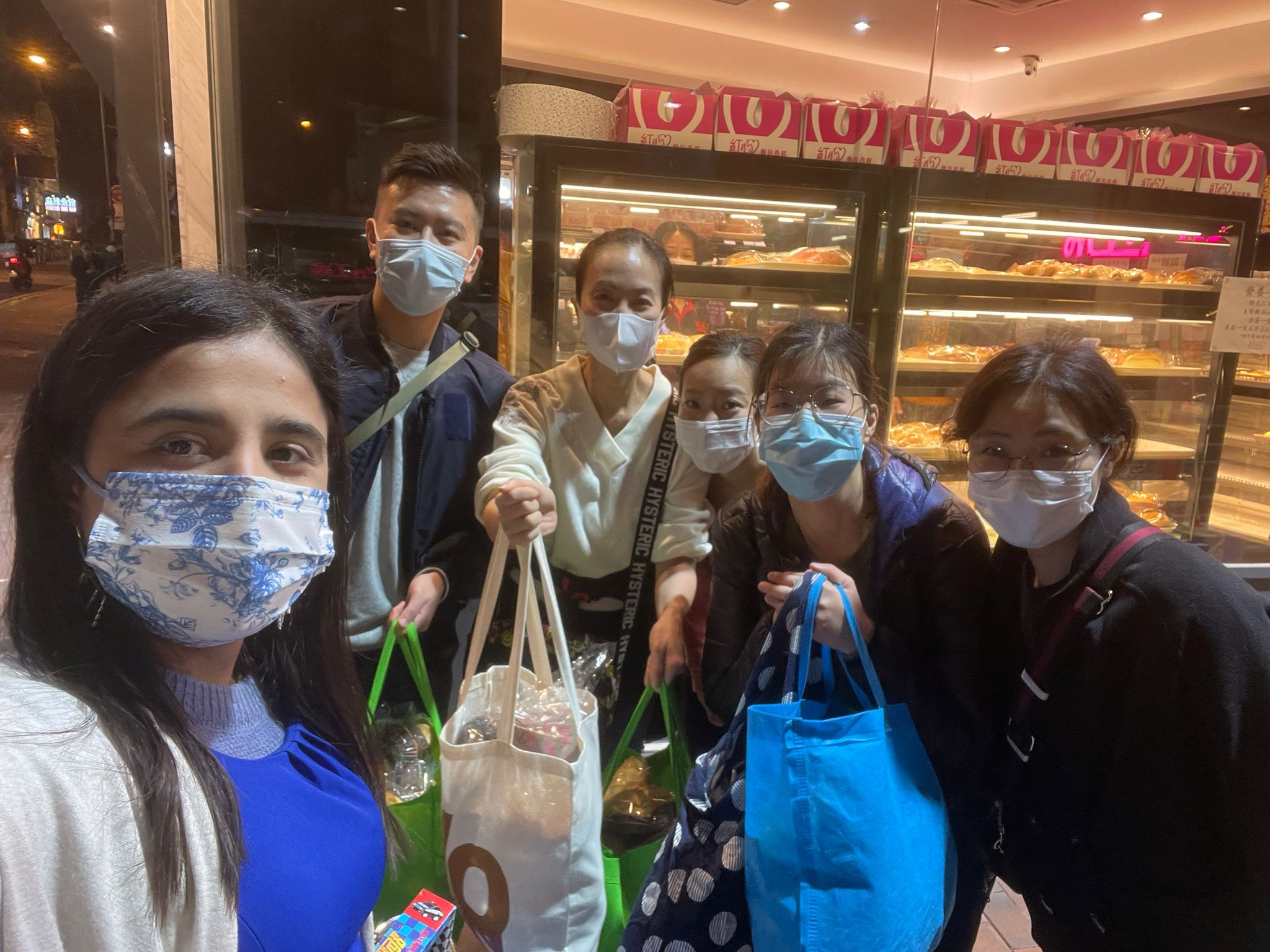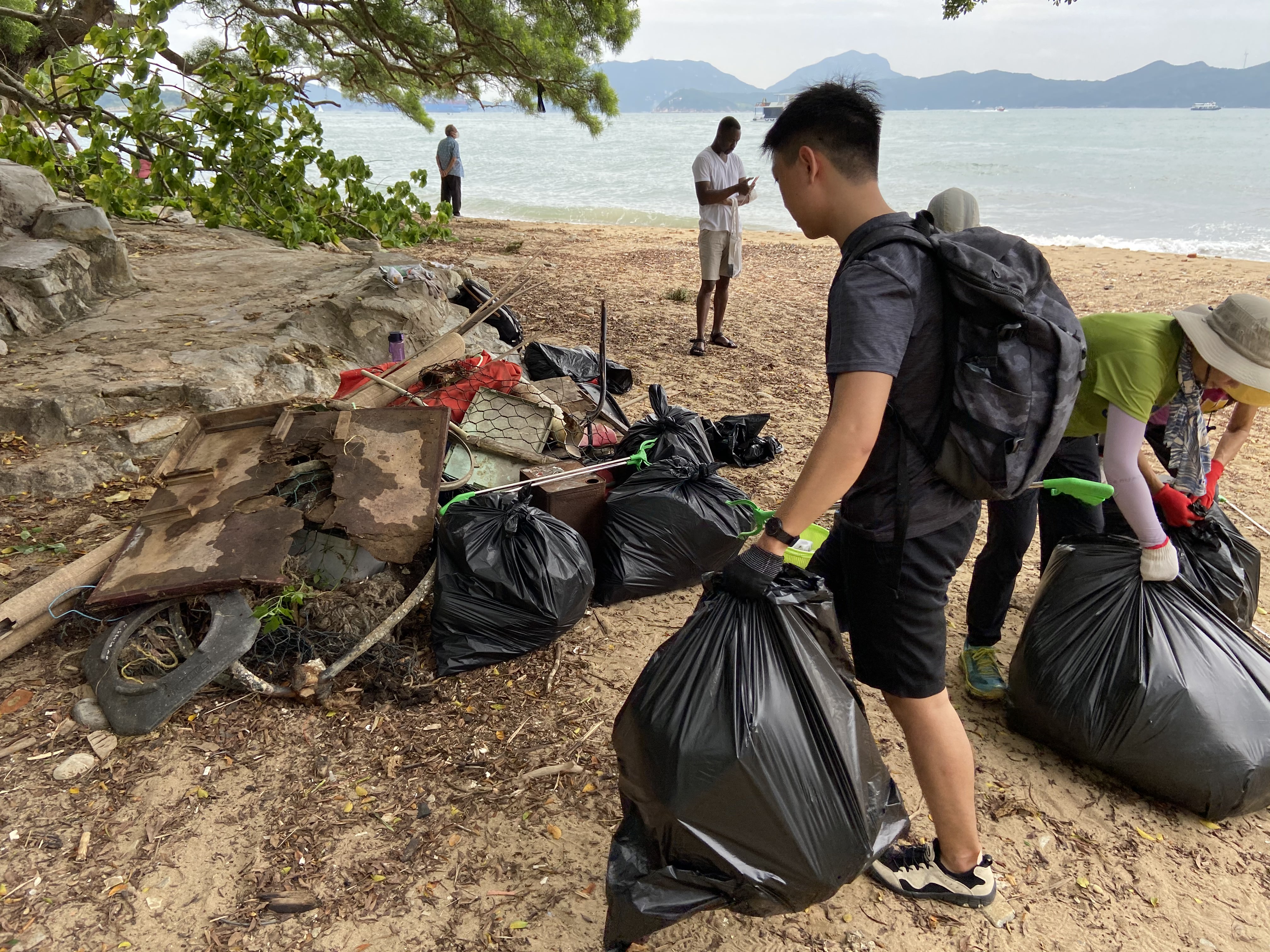How James Marlow of Hong Kong’s Green Hour believes education is the core of sustainability

A few minutes every morning is all you need.
Stay up to date on the world's Headlines and Human Stories. It's fun, it's factual, it's fluff-free.
Hong Kong’s Green Hour may have never existed if it wasn’t for a random New Year’s challenge from a friend back in 2018. “I didn’t really plan on doing anything around environmentalism before setting this up. It wasn’t something that I ever intended to do," James Marlow, the founder of Green Hour, admits. “He convinced me to do something when I got back to Hong Kong, and I was like, ‘Okay I’ll give it a go.'" And boy, did he give it a solid go.
Since Green Hour was solidly set up in 2018, in just a few short years, it has hosted more than 250 events involving more than 3500 volunteers. The group’s main events are currently “bun runs" and beach cleanups, leading the growing community of activists to have cleaned up more than 60 beaches, trails and urban areas and redistributed more than 45,000 items of food.
TMS sat down with Marlow to learn more about his journey to making an environmental impact through Green Hour and what’s next for the organization.
The missing link

What started as a personal project quickly grew. From joining other organizations and helping out with their events, Marlow found himself hosting his own events that matched his personal values and goals. However, while he acknowledged the hard work that other organizations were putting into their causes, he noticed an area that needed to be incorporated and improved – sustainability education.
Marlow recalls participating in a cleanup activity that ended with a celebration featuring a large barbecue, plastic cutlery and plastic gloves. This event filled three more trash bags full of waste. Marlow’s stomach fell, recognizing that the additional trash generation could have all been avoided with some better planning.
“If you do cleanup activities or any charitable event, I feel like one of the biggest focuses should be on education," he says with determination. “Whether it’s around helping the elderly, it’s a way for the public who are getting involved to better understand the problems of the elderly. Or, you know, if you’re working with people with disabilities – how people can interact with them."
Education, Marlow points out, is really the best way for volunteers to understand more about social issues and the needs of the less fortunate.
“I think the best way to do it is, because I’ve worked as a teacher for eight years in Hong Kong and one year in mainland China, for me, I always find the worst way you can educate people is to tell them something. Because usually, they’ll just say ‘No,'" Marlow continues, drawing a light-hearted parallel with advocating his self-practiced veganism to meat-eaters. “But, if you ask people questions, if you get them to answer the questions, you can see there’s the thought process there. And I think the thought process is a really important part of it because it allows people to make the connections themselves."
Marlow highlights the way he immerses people into the thought process. He recalls a beach cleanup on Yuen Long, Ha Bak Lai Beach, saying, “Whenever we were doing stuff, I just asked them like, ‘Oh, what’s that?’ or ‘What’s this?’ or ‘What do you think this is?’ or ‘How do you think, you know, we could make a difference here?'"
But Marlow’s take is that there are really no right or wrong ways for people to think questions through, as long as it engages them. “It’s a way to guide them. And kids, adults – it’s all the same really. I think the best thing to do is just get people to think for themselves instead of forcing it on them. I think it’s the best way of doing it."
Changing the planet one event at a time

Currently, an estimated 3600 tons of food waste enter Hong Kong landfills every day. This is why Green Hour has set up Bun Run – an event where groups of volunteers combine fitness and waste reduction by visiting various bakeries around closing time. The goal is to collect bread that would otherwise go to the trash and instead distribute it to people in need in the community. Those that benefit from this program include people working at cleaning stations who don’t earn very much and elderly groups.
“In the last 12 months, I think we’ve rescued maybe 10-12 tons of food, like cakes and bread, and that’s just from a few bakeries," Marlow beams.
The next step would be to scale up the program to reach even more community members in need. “Not if, when we scale it up, we can provide this to a lot more people," Marlow says. “And right now, I want to try and reach out to more charities that have their own service users, you know, like homeless groups or elderly community centers, and say, ‘Hey, look, we have this source of food available. It’s edible. It’s fine. No one wants it. Take it.'"
But, Marlow sallows at how COVID has impacted the Bun Run. For example, when leaving bread to specific charities that have access to communities in need, the volunteers of Green Hour are sometimes met with resistance because of the pandemic.
“With COVID It’s difficult because sometimes they’ll say, ‘Oh, sorry, we don’t want to collect it anymore.’ Or, you know, they’ll say ‘Yeah, like, we just don’t. You know, we’re worried about health and safety. So, can you do this or that or can you come at this time.'" he explains. “It’s difficult when you’re working with lots of different groups because they all have different wants and needs."
In addition to the Bun Run, Green Hour hosts its #TrashtagChallenge. This is a way for people to get involved while having fun and meeting new people. By organizing different outdoor activities like plogging (jogging while picking up litter), beach cleanups and hiking cleanups, Green Hour strives to keep Hong Kong clean while bringing the community together.
Each activity offers volunteers a different experience exploring and appreciating the best of Hong Kong. Plogging takes volunteers around different parts of the city, while hiking and beach cleanups are nature-oriented, taking volunteers off the beaten path for team-building activities surrounded by the best of Hong Kong’s beach and mountain views.
What’s next for Green Hour?
Big plans are in the works for Green Hour. Needless to say, Marlow is perpetually inspired to change his organization for the better – first, by helping more people. To start, he wants to scale up the organization’s existing events. More #TrashtagChallenges, more Bun Runs. With more of these events, Green Hour can make food more accessible to the less fortunate and clean up more of Hong Kong.
Marlow also has big dreams for the future. “I want a community center," he says. “Somewhere where people can come and host activities; we do workshops and cook some vegan meals for people to come and to try out. That’s what I really want to do – just bring everything together. All of our projects. All of the goals and aims. One big place, where everyone can just meet each other. And hopefully, just break some stereotypes as well."
Expanding on his passion for educating the community and breaking stereotypes, he refers to Hong Kong’s massive income gaps and the need for better housing. “I want to have a space where people can come regardless of their age or their background. If someone is homeless or if they are an elderly person, or whatever, they can just come in, they can just spend some time there. We can do maybe some free meals," he suggests.
The future of sustainability is looking good

When asked about who inspires him, Marlow smiles. “There are a lot of young people, not just in Hong Kong but globally who are really pushing to make a difference," he says. “And I think that’s really inspiring because the younger generation are like, not to be cliche, they are the future."
But, he also points out that taking care of the environment isn’t only in the hands of the younger generation. “And at the same time, it shouldn’t just be up to them," he says. “You know, it should be on all of us."
Currently, Green Hour hosts Bun Runs every Thursday, while beach cleanups happen every six to seven weeks. Green Hour always welcomes passionate volunteers to join its ever-growing team. Visit the website to find out more about Green Hour’s cause, and you can keep track of the organization’s events on its official Instagram page @greenhourhk.




Comments ()